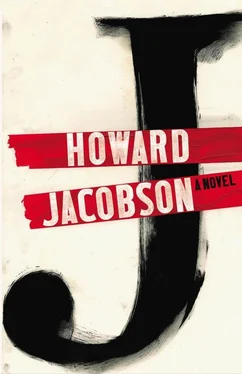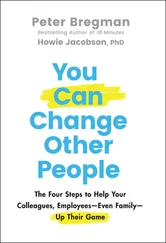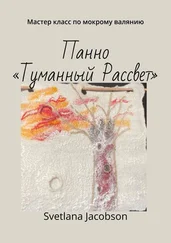To what? Alien influences?
Well, it was precisely in order to ensure that such a phrase would never be heard again (and I confess I’m as guilty as any other red-blooded patriot when it comes to itching every now and then to use it) that OPERATION ISHMAEL was instituted. It granted a universal amnesty, dispensing once and for all with invidious distinctions between the doers and the done-to. Time must close over the events, and there is no better way to ensure that than to bring everyone together retroactively. Now that we are one family, and cannot remember when we were anything else, there can be no question of a repetition of whatever happened, if it did, because there is no one left to do to again whatever was or wasn’t done.
We are all Rozenwyn Feigenblat!
(We are all at least — I confide to you, dear diary — dying for a piece of her. .)
While no one is listening, allow me to admit that it took a certain ruthlessness to bring us to this point of unanimity. I neither condemn WHAT HAPPENED nor condone it. Let the fact that I was not yet born prove my impartiality. But it needs to be said that we were not alone in our perplexity. What to do with those about whom something needed to be done; how to put a brake on their ambitions; how to express our displeasure with their foreign policy (bizarre that they should have had a foreign policy given that they were foreigners themselves and had what they called a country only by taking someone else’s); how to make safe again a world they’d gravely endangered with their migrations, military occupations, and finally weapons of mass destruction — this was something every other civilised country had to make up its mind about, and it is not without some backward-looking pride that I say we made up ours before anybody else. For which credit must go to my fellow professionals — vice chancellors of conscience-stricken universities and professors of the benign arts, painters, writers, actors, journalists, junior untenured academic staff, without whom the campaign to drive them from the face of the earth, to make of them vagabonds and fugitives, a pariah people cursed in every mouth, would not have been conducted in so civilised a manner.
Was there mob violence? I wasn’t there, but such a thing does not accord with the view I entertain of this most moderate of countries, home to lyric poets and painters of serene and timeless landscapes. That gross expostulatory rhetoric that has normalised brutality and supremacism in other countries has never disfigured our speech. We do not smudge our canvases in rage. We do not saw at our violins. Whether or not that class of individuals who are the first to throw stones and start fires enjoyed direct acquaintance with the lyric poetry and landscape painting to which they are heirs is immaterial. The effect filtered down to them in language and the habits of contemplation. All of which assures me that, no, there could not have been barbarity. Just the gentle pressure that civilisation itself can exert, the articulated outrage of cultivated people who would not themselves have countenanced, least of all encouraged, inhumanity. Why would they, with so many of the exalted tasks of culture to perform — paintings to finish, lines to learn, lectures to prepare — choose to whip the multitude into acts of ferocity inimical to their own temperaments? Where, apart from any other consideration would they have found the time for it?
‘Oh, there’s always time,’ Rozenwyn Feigenblat bolshily remarked once, when we happened to fall into conversation on this very subject.
I took that to mean that as librarian she knew how much sitting about staring into space we professors and painters are capable of. But then a librarian is not an artist; in her capacity as a filer and notator she will not have grasped the contribution that apparent indolence makes to the creative act.
For an artist, my dear, I wanted to say, to be unoccupied is sacred. What might look like doing nothing is in fact the long wait for beauty to find us. But I could see how that might be misinterpreted. ‘If you mean that we sometimes appear bored,’ I began instead. .
She shook her pretty head. ‘I’m not talking about boredom,’ she said. ‘I’m talking about mischief.’
She made it sound like pranks.
‘Sexual mischief?’ I asked, not wanting to sound too curious.
‘Intellectual mischief.’
Not being sure I could trust myself longer in her alluring presence, I let it go at that. Though she left me feeling she had more to say.
What she also left me feeling was that someone should be keeping an eye on her. A position for which, were it vacant, I’d think hard about applying.
But back to Kevern Cohen. What it came down to for me, at least, was that the only reliable way of uncovering Kevern Cohen’s intentions vis-à-vis his new sweetheart — short of asking him outright, and I wasn’t prepared to do that — was to observe him at close quarters. To which end I invited the lovebirds over for dinner. It would be on his day for visiting the college and I suggested, since he’d mentioned her, that he bring Ailinn down with him, which he was wary of doing to begin with — wariness being his first response to everything — but on discussing it with her he changed his mind. No doubt she wanted to meet his friends, of whom he has few and I can just about be counted one. A half-friend, say. A well-wisher, anyway. An extravagantly beautiful woman, Ailinn, with a tumult of dark hair, like charred straw, and darting, watchful, hawk-like features. She called to mind a seirene, one of those bird women who are painted attacking Odysseus and his crew on vases I have inspected in the National Museum. I am not thinking of the most familiar image, which shows a seirene swooping head first at the ship, her talons at the ready, but rather one of the more serenely musical temptresses, striking her drum or plucking at her harp, surprised, if anything, that Odysseus should want to resist. As Kevern plainly didn’t.
‘Besotted’ was the word my wife and I hit on quite separately, though Demelza did accuse me of stealing it from her.
Ailinn brought us a delicate bouquet of her paper flowers. ‘Kitsch, I know,’ she said, ‘but I make them and could find no fresh flowers in the shops.’
I appreciated the thought and the apology. It must have been difficult for her, taste-wise, visiting the house of a professor of the Benign Visual Arts. I told her they were lovely and pretended to smell them. ‘Haven’t seen you so skittish in a long while,’ Demelza said to me as we were making coffee in the kitchen. ‘A pretty face and you go as soppy as Petroc.’
Petroc was our Labrador. Petroc Rothschild. .
Not really, that was just our little off-colour joke. .
‘I am happy for them in their happiness,’ was my reply. She pinched my arm. I let out a little cry. ‘What’s that for?’ ‘You know what that’s for. Being happy for them in their happiness. Liar! Why don’t you just lick her face?’ ‘Bitch!’ I said. ‘Prick!’ was her retort.
That night, over an acrimonious nightcap of Benedictine and brandy, we discussed divorce. Discussion had always been something we were good at. You could say it was the glue of our conjugality.
Before they left, Ailinn did say one thing that struck me as surprising. ‘Sometimes,’ she mused, in answer to my asking how she found it down here, ‘this part of the country seems full of eyes.’
‘Eyes?’
‘Watching eyes.’
‘Really?’ I said, opening my face to her. ‘How do you mean?’
Kevern, too, appeared taken aback by her words. ‘I don’t know,’ she said. ‘Something about the way they look at you here. It’s not disapproval exactly. It’s not even suspicion. It’s more as though they’re waiting for you to make a mistake or show your real nature.’
Читать дальше












